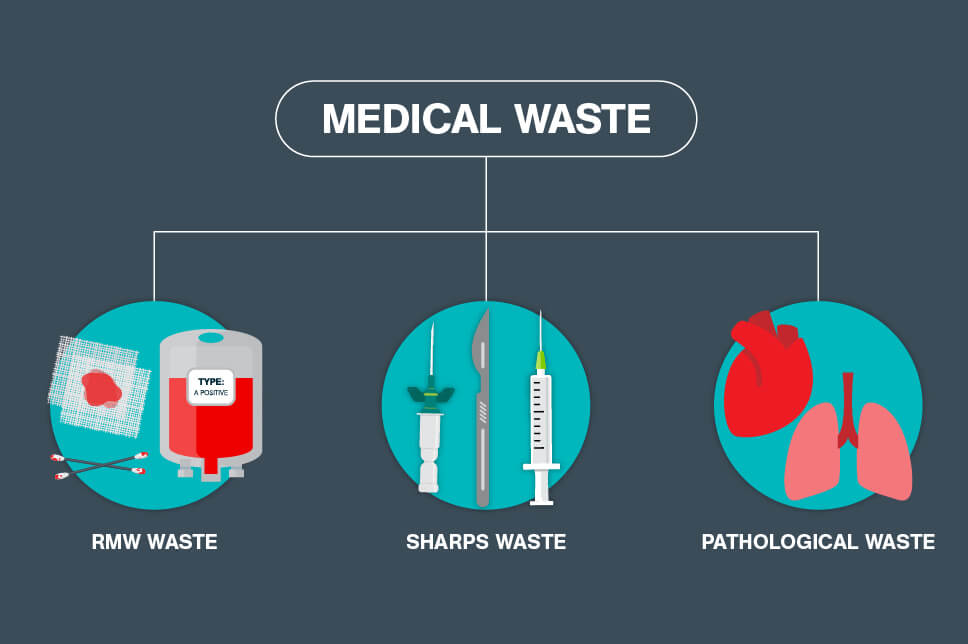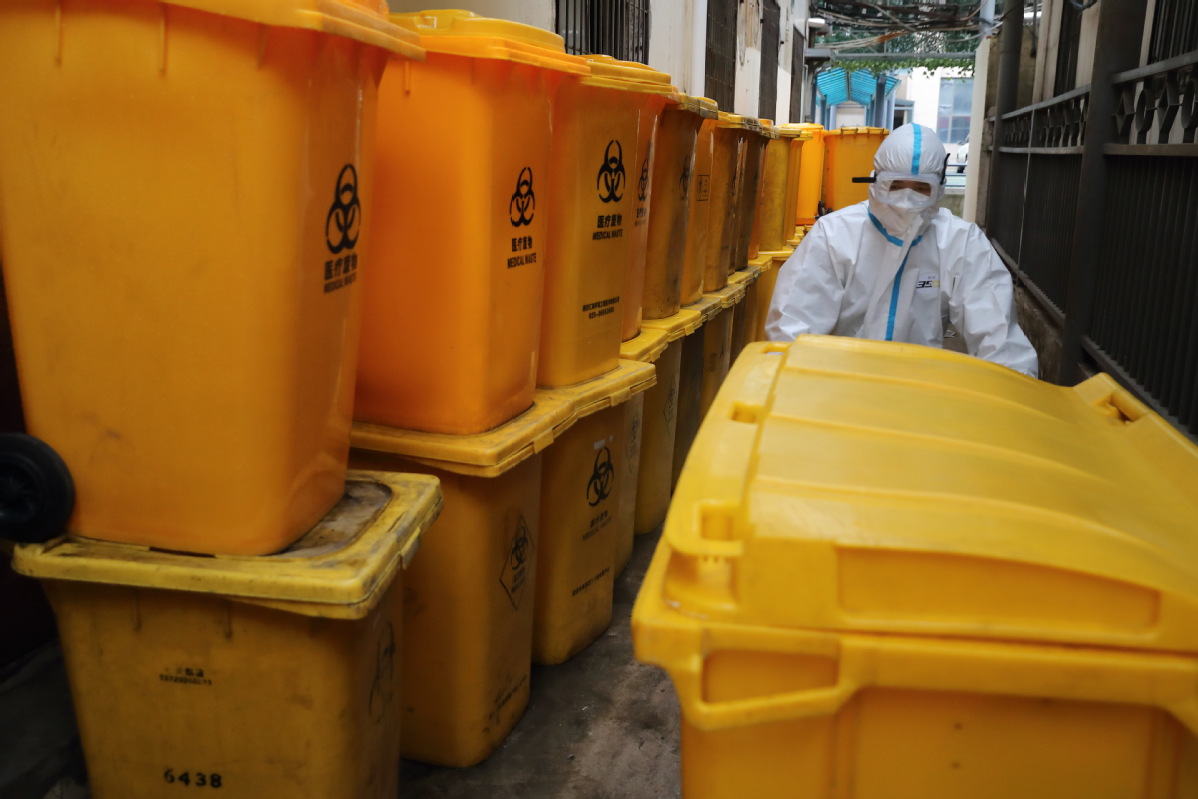Reliable Medical Waste Disposal Services: Partnering for a Cleanser Setting
Reliable Medical Waste Disposal Services: Partnering for a Cleanser Setting
Blog Article
Navigating Medical Garbage Disposal: Important Services for Health Care Facilities
In the detailed landscape of medical care procedures, the management of medical waste is a critical aspect that requires meticulous focus. Healthcare facilities, whether small facilities or large health centers, are delegated with the responsibility of handling, treating, and throwing away a wide selection of clinical waste streams. The complexities involved in browsing via the governing demands, guaranteeing proper waste segregation, and executing secure collection and transport processes are extremely important. Understanding the necessary solutions that support clinical garbage disposal is not just a matter of compliance but also a basic part in protecting public health and wellness and environmental health. The details of this process are vital for healthcare centers, and the proficiency supplied in this world plays a pivotal role in keeping the integrity of medical care systems.
Regulatory Compliance Assistance
For healthcare facilities, making certain regulative conformity support is vital to keep proper handling and disposal of clinical waste. Complying with guidelines stated by companies such as the Environmental Defense Firm (EPA) and the Occupational Safety And Security and Health And Wellness Management (OSHA) is critical to avoid ecological contamination, safeguard public wellness, and prevent prospective lawful effects. Regulative compliance support offers health care centers with guidance on how to properly segregate, store, transport, and dispose of various sorts of clinical waste in accordance with regional, state, and government laws. This assistance consists of help in creating and executing detailed waste administration plans, carrying out normal team training sessions, and executing audits to make certain ongoing conformity. By partnering with governing conformity professionals, health care facilities can stay up-to-date on evolving guidelines, mitigate dangers related to improper garbage disposal, and inevitably add to a more secure and a lot more sustainable environment for all.
Waste Partition Guidance

Health care facilities need to supply clear standards and training to personnel on exactly how to segregate waste successfully. This includes separating general waste from hazardous products such as sharps, transmittable waste, drugs, and chemical waste.
Collection and Transport Solutions

Proper collection and transport solutions are necessary parts of the medical garbage disposal procedure in healthcare centers. These solutions guarantee that unsafe products are dealt with securely and in compliance with laws to secure both the environment and public wellness. Healthcare centers count on specialized waste management firms to supply efficient collection and transport services customized to their needs.
Clinical waste collection entails setting apart different types of waste at the factor of generation, utilizing color-coded bins or bags to compare basic, harmful, pharmaceutical, and other waste streams. Educated employees need to execute this task to stop contamination and make sure proper disposal. When accumulated, the waste is delivered in devoted lorries geared up to take care of dangerous products safely. These lorries adhere to rigorous safety criteria and adhere to assigned courses to certified therapy facilities for disposal via techniques such as landfilling, incineration, or sterilization.
Treatment and Disposal Solutions
In the realm of medical waste disposal for healthcare facilities, after the important stage of collection and transportation solutions, the emphasis shifts towards implementing effective treatment and disposal services. More about the author Treatment options commonly involve procedures such as autoclaving, which utilizes heavy steam under pressure to sanitize the waste. This technique is frequently Click Here utilized for contagious waste that should be rendered non-hazardous prior to disposal. One more prevalent treatment approach is incineration, where waste is subjected to heats in regulated setups to lower its volume and eliminate virus.
Disposal solutions encompass the final step in the medical waste monitoring procedure. Recycling and source healing are additionally gaining traction as sustainable disposal choices for particular types of medical waste materials.
Efficient therapy and disposal remedies are critical in ensuring compliance with regulations and securing public health and wellness and the atmosphere. Medical care centers must carefully assess and select proper approaches that align with their waste management goals and sustainability initiatives.
Staff Training and Education

To efficiently manage medical garbage disposal in health care centers, comprehensive personnel training and education play a crucial function in making sure adherence to regulative requirements and keeping a secure setting. Correct training furnishes staff with the expertise and skills needed to take care of different types of clinical waste, segregate them properly, and package them firmly for disposal. By enlightening employees on the risks related to improper handling of clinical waste, centers can reduce the chance of crashes, contamination, and regulative offenses.

Final Thought
Finally, health care centers rely upon important medical waste disposal services to make sure governing conformity, correct waste partition, secure collection and transport, efficient treatment and disposal, in addition to personnel training and education. These services Visit Your URL play an important role in maintaining the health and wellness of both healthcare employees and the general public, highlighting the significance of appropriate management of medical waste in healthcare setups.
For healthcare facilities, making sure regulatory compliance support is important to maintain correct handling and disposal of clinical waste. Waste partition includes categorizing different types of clinical waste to guarantee suitable handling, treatment, and disposal. This consists of dividing general waste from hazardous products such as sharps, infectious waste, drugs, and chemical waste.Medical waste collection entails segregating different types of waste at the point of generation, making use of color-coded bins or bags to differentiate in between basic, hazardous, pharmaceutical, and various other waste streams.In the realm of clinical waste disposal for health care centers, after the essential phase of collection and transportation solutions, the emphasis shifts in the direction of applying efficient treatment and disposal remedies.
Report this page